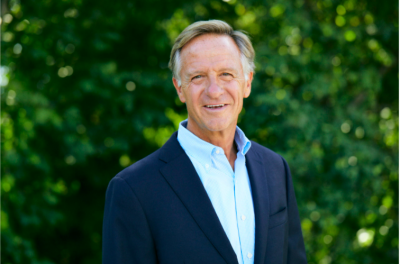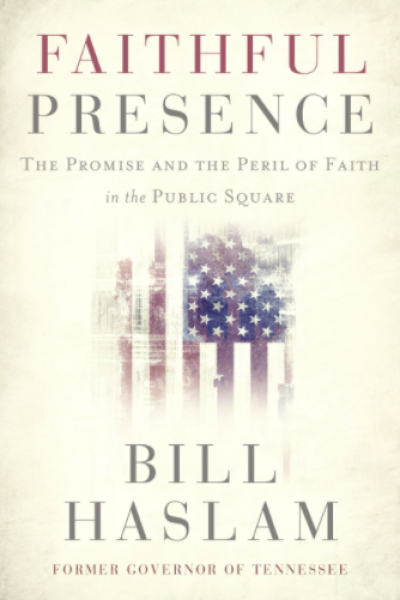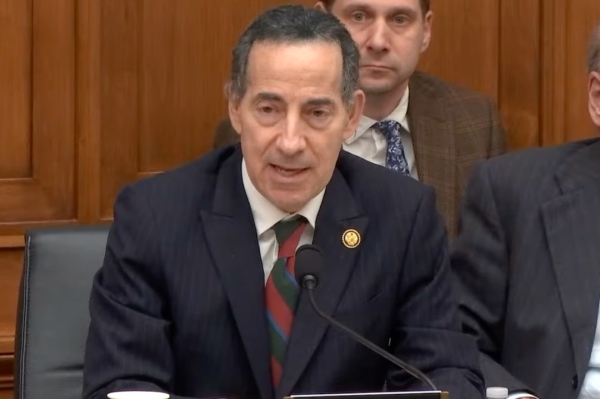Faith in the public square: Balancing truth and love

I know a lot of people who take pride in being “truth-tellers.” You know them too. They are the ones who are quick to proudly proclaim, “I tell it like it is.” But no one ever feels very loved around them.
Others love well but have a hard time ever landing on a spot from which they cannot be moved. They are the ones Paul describes in Ephesians as “tossed to and fro by the waves and carried about by every wind of doctrine, by human cunning, by craftiness in deceitful schemes” (Ephesians 4:14).
So what is the balance between the two? How do we hold both truth and love in tension?
Our times are often described as postmodern. Postmodernism is the idea that truth is subject to change and open to individual determination. The spirit of the age says what is true for you might not be true for me. While this is typically thought of as a product of the second half of the twentieth century, Pontius Pilate delivered the signature phrase of postmodernism back at the beginning of the first century.
After Jesus was arrested earlier in the night, he was brought for trial before Pilate, the governor of the Roman province of Judea. As Pilate was interrogating Jesus, he asked, “So you are a king?” Jesus replied, “You say that I am a king. For this purpose I was born and for this purpose I have come into the world—to bear witness to the truth. Everyone who is of the truth listens to my voice” (John 18:37). Pilate’s response, “What is truth?” (v. 38) would fit in very well in our postmodern world. Jesus said he came into the world to bear witness to the truth. Pilate, probably having heard a lot of arguments in his role as governor, had given up on the idea of truth.
I was teaching a class at Vanderbilt University when a student stopped me in the middle of a discussion and asked if I believed there was such a thing as truth that was true for everyone. She was surprised when I said I did. She was even more surprised when I said I thought she did too. I pointed out that her backpack and laptop were both covered with pins and stickers demanding rights for various groups. If there is no such thing as transcendent truth — truth that is true regardless of the situation — then where does the idea of “rights” come from? If truth is relative and dependent on the situation, then it is hard to claim that moral rights exist.
Jesus does not give us the alternative of deciding what may be true for you might not be true for me. “I am the way and the truth and the life” (John 14:6) is about as far away from a postmodern statement on truth as you can get. Likewise, he does not give us the alternative of deciding who we will love.
The well-known passage on love from 1 Corinthians 13 has become best known for being read at weddings. As the loving couple stands at the altar, we all nod our heads as the reader reminds us that love is patient and kind; it does not envy or boast; it is not arrogant or rude; it does not insist on its own way; it is not irritable or resentful; and it does not rejoice at wrongdoing but rejoices with the truth. The hard part is when we are reminded that Paul did not write that passage for wedding ceremonies but for all of life, including politics.

We are clearly called to love our fellow believers: “By this all people will know that you are my disciples, if you have love for one another” (John 13:35). But that is the easy part. He also tells us that we are to love even those we don’t like and those who are on a different political side, when he says we are to “Love your enemies” (Matthew 5:44). It’s not an either-or type of situation when it comes to truth and love. It’s a both-and.
There is a strong consensus that American democracy is in trouble and very few look to people of faith to help bridge the divide and solve our biggest problems.
I think it is for a time like this that Christians are called to the public square, but not in the ways that we have traditionally approached it. These times call out for people who understand that our cries for justice have to be accompanied by a humble and merciful spirit. These times require citizens who are committed to both truth and love, not one without the other. We can be people who truly seek the peace of the places we have been exiled, knowing that God has tied our welfare to the welfare of the places he has called us.
Adapted from Faithful presence: The promise and peril of faith in the public square Copyright © 2021 by Bill Haslam. Published by Thomas Nelson. Available wherever books are sold.
Bill Haslam is the former two-term mayor of Knoxville, Tennessee, and former two-term governor of Tennessee, reelected in 2014 with the largest victory margin of any gubernatorial election in Tennessee history. During his tenure, Tennessee became the fastest improving state in the country in K-12 education and the first state to provide free community college or technical school for all of its citizens, in addition to adding 475,000 net new jobs. Haslam serves on the boards of Teach for America and Young Life. In the fall of 2019, Haslam became a visiting professor of political science at Vanderbilt University. He and his wife of thirty-eight years, Crissy, have three children and nine grandchildren.





















